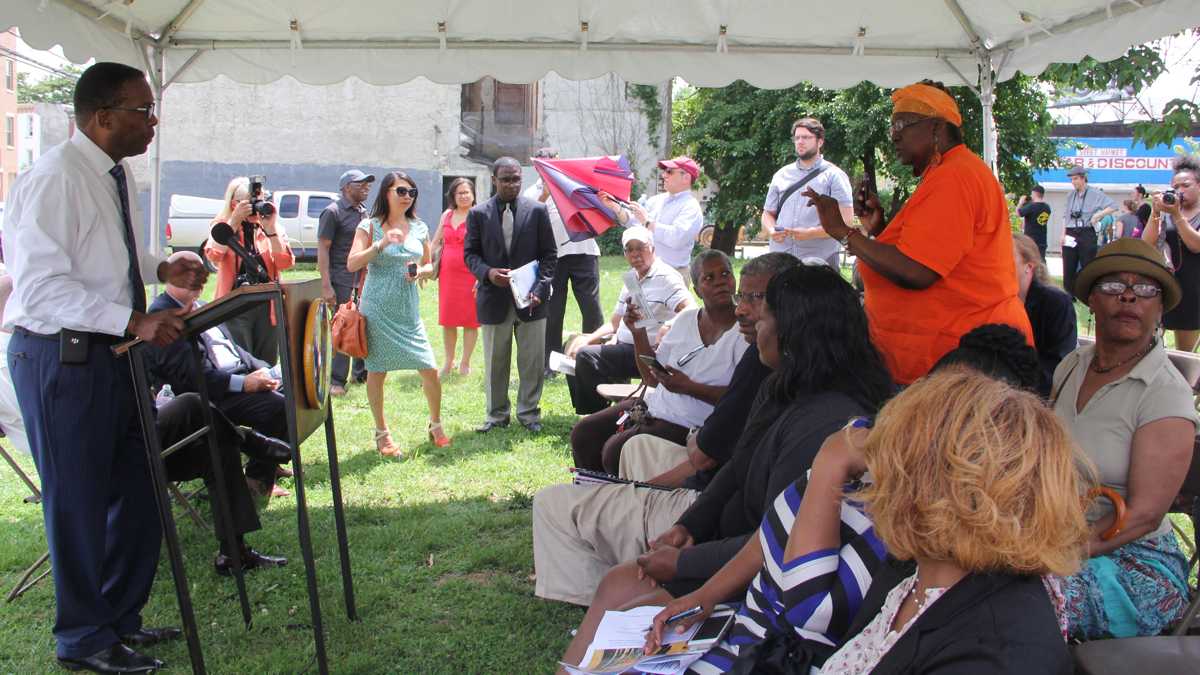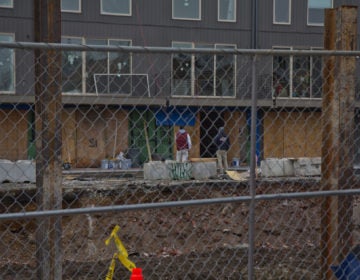Key part of Clarke’s affordable housing gambit appears scuttled by HUD – for now

City Council President Darrell Clarke organized a press conference a year ago in which developers, labor leaders and other elected officials endorsed his initiative to build thousands more affordable homes and apartments on vacant land throughout the city.
Three months later, the Philadelphia Housing Authority announced an “unheard-of” deal struck as part of Clarke’s plan: the city’s building-trades unions agreed to slash their wages and benefits 20 percent to carry out the affordable housing proposal.
But as Clarke stops by events trumpeting the development of “workforce-housing” units that will be for sale at sub-market prices, the other half of the program, aimed at building subsidized, affordable rentals for low-income Philadelphians, has hit a series of snags.
Officials from the U.S. Department of Housing and Urban Development have rejected the deal struck between PHA and the building trades, because the negotiated rates are lower than what’s required under federal law. City officials are now appealing the decision to HUD’s national office.
The discounted labor agreement was seen as a key incentive for the affordable-rental component of the plan.
“It’s probably one of the biggest cost savings that we’ve identified,” said Mark Levin, with Regional Housing Legal Services. He helped put together three committees tasked with implementing Clarke’s affordable housing plan. “We were maybe overly optimistic of how quickly it can come together.”
When they heard of the rejection letter, local labor leaders, who had found consensus among the 14 unions represented by the building counsel, tried to take the matter in their own hands.
“I tried myself, through people I knew,” said Pat Eiding, secretary-treasurer of the Building and Construction Trades Council of Philadelphia. “To see if there was something, anything at all that we can do, slant it this way, slant it that way, but get it approved. But it kept coming back to me that you couldn’t do that.”
Levin said federal officials should allow the local agreement to override federal prevailing wage laws, since the deal was reached through collective bargaining. Officials in Washington, D.C., are now debating whether to approve the deal and override HUD’s regional office.
Though it’s a hitch in Clarke’s project that those close to the talks say can be overcome, it illustrates that the apartment component of the plan, the part directly aimed at poor Philadelphians, is saddled with issues that will likely take months to work out.
Originally, Clarke planned for $100 million in municipal borrowing that would subsidize the 1,000 apartment units to make them affordable to low-income renters. His office has since stepped away from the $100 million bond issuance and says the units can be made affordable without the subsidy. But in order to receive a certain federal tax credit for low-income housing, a linchpin of the original proposal, some bond financing needs to come into play.
Clarke’s office said that the Housing Authority itself or the Pennsylvania Housing Finance Agency could still issue bonds even if the city doesn’t. They also say that the affordable-rental component of the plan is moving forward, slowly, by other means.
Three committees composed of bond attorneys, housing attorneys and nonprofit advocates have been devised to issue recommendations for the project about its budget, bond arrangement and other deals, according to Mark Levin. Levin wouldn’t comment on the talks, nor would he discuss the recommendations, which are expected to be presented to City Council in the coming weeks.
Mayor Nutter didn’t appear at Clarke’s original announcement last year, and was absent from subsequent press gatherings about the affordable housing plan. There have been high-level discussions between Nutter’s office and Clarke that have been described as productive and supportive, but those close to the plan say the optics of Nutter not being present for the photo-ops is notable.
Despite their labor contract still in limbo, union leaders are remaining hopeful.
“We may be able to control costs in other ways,” said Pat Gillespie, who heads the Philadelphia Building and Construction Trades Council. “We’ll try to find a way around the bureaucrats.”
WHYY is your source for fact-based, in-depth journalism and information. As a nonprofit organization, we rely on financial support from readers like you. Please give today.






